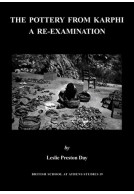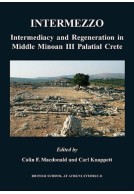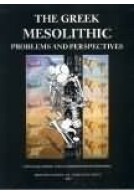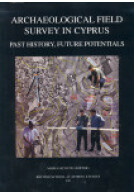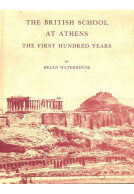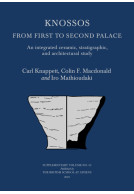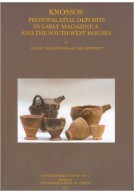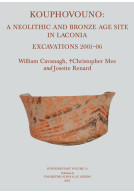Parallel Lives (Hardback)
Ancient Island Societies in Crete and Cyprus
Imprint: British School at Athens
Series: BSA Studies
Pages: 382
Illustrations: b/w illus
ISBN: 9780904887662
Published: 28th August 2012
Script Academic & Professional
Series: BSA Studies
Pages: 382
Illustrations: b/w illus
ISBN: 9780904887662
Published: 28th August 2012
Script Academic & Professional
You'll be £19.95 closer to your next £10.00 credit when you purchase Parallel Lives. What's this?
+£4.99 UK Delivery or free UK delivery if order is over £40
(click here for international delivery rates)
Order within the next 11 hours, 8 minutes to get your order processed the next working day!
Need a currency converter? Check XE.com for live rates
(click here for international delivery rates)
Order within the next 11 hours, 8 minutes to get your order processed the next working day!
Need a currency converter? Check XE.com for live rates
How do the cultures of Crete and Cyprus, the two great islands of the eastern Mediterranean, compare in their history and development from the 3rd millennium to the 1st millennium BC? What was similar and what was different in their social and political, economic and technological, and religious and mortuary practices and behaviours, and in the natural settings and choices of places for settlements? Why, and how, did convergences and divergences come about? Why for instance did monumental buildings appear in Cyprus several centuries after they had emerged in Crete? And what was the impact on Cypriot society of the island's rich copper resources, while Crete as a rule had to import the metal? How and why did Cyprus manage an apparently much more peaceful transition from the Bronze Age to the Iron Age than Crete? These are among the important questions that a leading group of experts on the two islands addressed at Parallel Lives, a pioneering conference in Nicosia organised by the British School at Athens, the University of Crete and the University of Cyprus, to compare and discuss the islands' cultural trajectories diachronically from c. 3000 BC through their Bronze Ages and down to their loss of independence in 300 BC for Cyprus and 67 BC for Crete. Papers given then are now presented in fully revised form as chapters in this book, which is the first to bring together the study of Crete and Cyprus in this way, while starting with their insular geo-cultural identities. It will be a valuable resource for students of both islands, for all who are interested in ancient material cultures and mentalities in the Mediterranean, as well as those engaged in island studies across the world.
Other titles in the series...
Other titles in British School at Athens...









